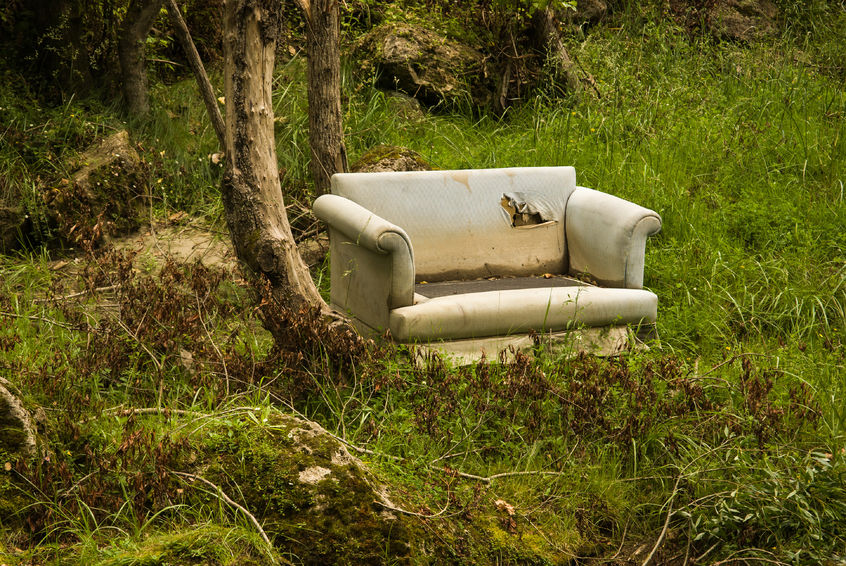
Farmers and landowners are calling for stronger enforcement of legal action to help combat fly-tipping that is blighting the countryside.
Figures released by Defra this week show incidents of waste dumped illegally on public land which have been reported to and cleared by local authorities have decreased by just 1% from 2016/2017 to 2017/2018.
Legal action taken by councils against the perpetrators has increased 4% on 2016/2017, with 494,034 actions taken. However this is less than the number of actions taken each year between 2013/4 and 2015/6.
Out of 997,553 fly-tipping incidents in 2017/2018, 137 vehicles were seized (down from 197 in 2016/2017), and out of 2,243 prosecutions, 1,938 fines were imposed, most commonly between £200-500.
The CLA which represents landowners, farmers and rural businesses, said the figures do not reflect the true scale of the crime because reports of fly-tipping on private rural land are not included.
The organisation has called for stronger enforcement of legal action by local authorities to really combat the crime.
The scourge of fly tipping can leave landowners financially devastated. Last year, a landowner was left with a bill running over £100,000 after criminals left more than 250 tonnes of rubbish on his field.
Private landowners are liable for any waste dumped on their land and are "fed up" of having to clear up other people’s mess, the CLA said.
CLA President, Tim Breitmeyer said: “It is vital that more prosecutions are brought forward successfully to encourage people to do the right thing and dispose of their rubbish through proper legal channels.
“Councils must send a clear message to fly-tippers that they will face financial consequences.
“But to really combat this crime against the countryside we need to see tougher penalties which act as a true deterrent. Imposing and enforcing stiffer penalties which better reflect the seriousness of the crime is crucial, along with seizing the vehicles used to fly-tip.”
Mr Breitmeyer added: “Only when we see evidence of local authorities across the board taking much stronger action to combat fly-tipping can we hope to see a meaningful improvement.”
An independent review published on Wednesday (15 November) identified fly-tipping as a key element of serious and organised waste crime.
The review mirrors a recommendation put forward by the CLA in its five-point action plan to tackle fly-tipping by calling for a Joint Unit for Waste Crime (JUWC) to tackle the most serious cases.
Mr Breitmeyer added: “It is good to see the review recognises the importance of working collaboratively to tackle this anti-social behaviour. We advocate the appointment of a tsar to co-ordinate with national agencies, monitor the scale of the problem across both public and private land and benchmark enforcement performance.”
